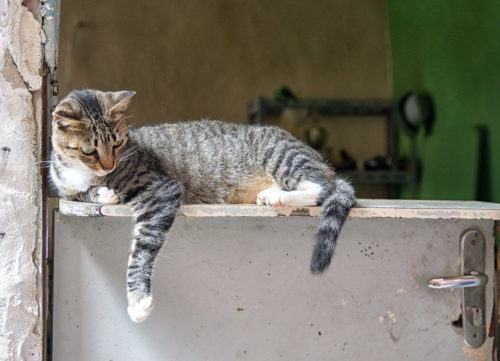Its been in the news this week that a British woman was shot in her car after accidentally entering a favela . We always walk around on our own in any city that we visit but we did feel the need to be more cautious in Rio than many other places. We deliberately steered clear of any areas we thought looked a bit seedy especially at night.
But there is an essential sight to see in Rio despite it being in a tough area – a favela.
Favela is Portuguese for slum and over one million people live in one of the many favelas in Rio. The easy and safe way to visit is on an organised tourist trip. If you can arrange this with a local company your tourist dollars go back to the community and you are made welcome, or at least tolerated with good grace.
Santa Marta Favela
This favela was one of the first to be pacified- the drug gangs were removed and social change projects were started. The narrow alleys wind up and down the steep hillside of Botafogo. At the bottom the houses are painted bright colours to boost pride in the community.
We wandered around trying to keep up with our guide at the same time as taking photos ( aiming with care!). We saw very basic housing but the glimpses of the interiors looked colourful and comfortable. There was a small shop or two, a school and a sports field. Some people choose to live here rather than in more expensive accommodation in so called better areas and you can see that it is a good community.
We felt safe with our guide and the reactions to us were friendly. But it would be easy to get lost in the narrow alleys and it would have been quite scary to be on our own.
The Michael Jackson Connection
In 1996 Michael Jackson recorded a video for “They Don’t Care About Us” in the Santa Marta favela. He used the locals as extras.
This is commemorated by a mural and a statue of him
Some people disapprove of so called “poverty tourism” but if you don’t go to places to be politically correct you end up seeing the shiny new tourist areas and nothing else.
Visitors have no right to involve themselves in the politics of the places they visit but we want to take away with us a real impression of life where we go.
Otherwise we might as well stay on the beach.










